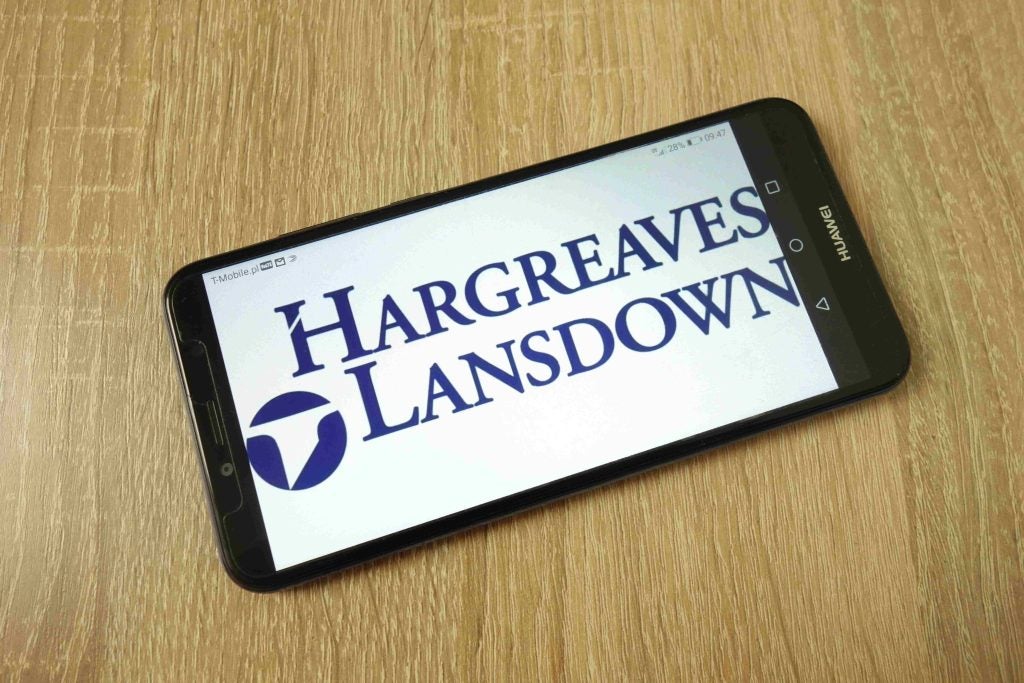Sub-Saharan Africa is a region that is beginning to receive more attention from the private banking and wealth management industry. International and domestic private banks are revealing different approaches to best service as well as build lasting relationships with the emerging HNW segment in the region. John Schaffer speaks to leading players to find out more
Africa’s young and growing population has strong potential for steady wealth creation in the long term. The strong push towards entrepreneurialism has increased the high net worth individual (HNWI) population in recent years and there is scope for management of this new wealth.
According to Knight Frank’s Wealth Report 2015, African ultra high net worth individuals (UHNWIs) held $0.2tr of wealth in 2014. The report also forecasts that Africa’s ultra wealthy population will increase by 59% over the next 10 years.
Mass urbanisation is also promoting growth. Knight Frank’s Africa 2015 report suggests that Sub-Saharan cities are amongst the fastest growing in the world, with an estimate that the population of Lagos may reach 40m by 2050.
Charles Hoffman, managing director at HSBC Private Bank (UK), suggested at the PBI Conference: London 2015 in June, that Africa should be a key focus for the industry – citing a UN forecast where Africa’s population is set to account for 40% of the world’s population by 2100.
How well do you really know your competitors?
Access the most comprehensive Company Profiles on the market, powered by GlobalData. Save hours of research. Gain competitive edge.

Thank you!
Your download email will arrive shortly
Not ready to buy yet? Download a free sample
We are confident about the unique quality of our Company Profiles. However, we want you to make the most beneficial decision for your business, so we offer a free sample that you can download by submitting the below form
By GlobalDataAlthough the population growth across Africa is certainly significant, the growth level of wealthy individuals may not be as immediately attractive to the private banking and wealth management industry. Chirag Thakral, lead strategic analyst at Capgemini, tells PBI that although Africa’s wealthy population experienced "robust" growth in 2014, it was still less than the global average.
According to Capgemini, the high net worth individual (HNWI) population in Africa grew by 5.2% in 2014, compared to 6.7% globally. Thakral suggests that Africa accounts for approximately 1% of the overall wealth management market, and believes that Asia Pacific is more of a significant region for the industry to concentrate on.
Although there has been relative political stability amongst Sub – Saharan countries in recent years, there is still the risk that political upheaval in one of the major growth economies such as Nigeria, Kenya, South Africa or Angola could reverse some of the progress being made in terms of wealth creation.
Increasingly competitive landscape
The private banking and wealth management industry in Sub-Saharan Africa is experiencing heavy competition between the domestic African banks, such as Standard, FNB and Ecobank, as well as the larger international players.
Ecobank’s proposition is domestically focused. Korede Demola-Adeniyi, head of premier banking at Ecobank, tells PBI that the bank understands the specific needs of African HNWIs, which is its strength.
"We understand our people, so we can offer them a niche than no one else can offer. When you deal with somebody and you understand their culture, you know exactly how to handle them. There are little things that would matter to them that a foreign bank would not think about," she says.
Ecobank has been in the private banking space for approximately one year. The service is called "premier banking" and the majority of the bank’s client base has been derived from the wealthier portion of retail banking customers. The bank has partnered with larger players such as Nedbank to "offer what you would get from the foreign international banks and then put some local spice into it", Demola-Adeniyi tells PBI.
Although the pan-African bank currently services 36 countries through its retail bank, its private banking proposition is only available in Nigeria, Ghana and Cote d’ivoir.
Demola-Adeniyi says that although Ecobank plans to eventually offer its premier banking service in ten more African countries, the full extent of provisions, such as dedicated lounges for customers, will not be on offer due to a lack of a significant wealthy population in certain regions.
One of the most significant players in the African private banking space is South Africa headquartered, Investec.
Although Investec could be considered a domestic bank, Ryan Tholet, head of private bank South Africa at Investec, says the bank leverages on its global reach and counts the international players as competition. He tells PBI:
"We don’t think of ourselves so much as just a South African bank anymore. The things that we focus on are now far more international because I firmly believe our emerging competitors are increasingly the likes of Credit Suisse, HSBC, and UBS.
"At the other end of the spectrum you’ve still got local competitors such as RNB and Standard where clients who typically choose to bank here (we believe) may not be driven so much around being treated as a global citizen."
Theolet also explains why the bank is only present in South Africa and Mauritius, across the continent. "Given the relatively higher principal risks in South Africa of trying to create wealth as opposed to managing it and preserving it – that model going in to Africa where your risks for creating wealth can be even higher, can’t be effectively done, we believe, unless you have a physical presence on the ground, you’re dealing directly and constantly with the clients, and you know them back to front."
Investec’s qualifying criteria for private banking clients is minimum earnings of RND750,000 ($59,200) per annum. Barclays’ South African subsidiary, Absa, has the same requirement for its wealthy clients. Theolet adds that the qualifying criteria covers approximately 3% of the South African population.
Increasingly, foreign private banks are entering into the Sub-Saharan market. Switzerland-headquartered UBS offers private banking and wealth management in a few select areas in the region including South Africa, Nigeria, Kenya, Tanzania and Uganda. The global private banking giant also has plans to service Angola, where the HNW population is growing due to mineral and oil wealth.
Martin Emodi, head of Africa at UBS Wealth Management, says that the bank has been selective, as it would be "foolish" for a foreign bank to cover all countries in Sub-Saharan Africa.
Prospective clients can open an account with investible assets of $0.5m, a figure that Emodi says often "surprises" clients.
Emodi tells PBI that UBS differentiates itself from domestic players by exposing clients to a more global platform.
"Our expertise primarily lies in global investing, while local banks are excellent partners for local investing."
UBS also partners with African banks such as Investec to offer select products to its clients. "We have to be there now to start building the client base and to show commitment to local entrepreneurs. You can’t just come in when the show is happening, you have to be there very early on," adds Emodi.
Growing middle class
Although many of Absa’s clients are the ultra wealthy, self-made entrepreneurs, a significant portion of its client segment comes from professionals such as lawyers, doctors and accountants – indicating a growth in the South African middle class.
This is mirrored by Investec’s proposition. The bank offers an entry level private banking service to young professionals who would not normally have the wealth required for a private banking account, but are accepted due to their potential future loyalty to the bank.
Tindleni says that one growing client segment for Absa is the "black middle class" that is developing in the post-Apartheid era.
"There’s been huge growth in the black middle class in South Africa and that was historically not the case. With those individuals being part of the middle class, a lot of them are migrating over time into the top end, and starting to earn significant amounts of money."
The growth of the African middle class will also provide a potential opportunity for entrepreneurs to capitalise on consumer led industries. Emodi, UBS, says:
"People who can benefit from the growth of the Nigerian lower middle class – anything from consumer staples, housing, energy, to transport – will be the next wealthy Nigerians."
Investment trends
Bongiwe Tindleni, head of private banking at Absa, tells PBI that wealthy individuals in South Africa with a large amount of disposable income are looking to invest outside of the regional market.
"Increasingly in the high end, we are seeing clients starting to talk to us about offshore investment."
However, she adds that a significant amount of the bank’s clients are still investing domestically in areas such as property, especially if they are at the younger end of the client segment.
Ecobank’s Demola-Adeniyi, tells PBI that amongst Ecobank’s clients, investment appetite is modest due to high interest rates on deposits in many of the Sub-Saharan regions. She says that her clients are more inclined towards cash and equities within their own countries as returns are higher compared to international rates. Nigerian interest rates, for instance, stood at 13% during 2015.
However, one issue for the African wealthy could be over-exposure to home currencies and investments, where emerging market economies are traditionally more volatile than those in the developed world.
Tholet, Investec, says that this is one of the most significant concerns of his South African based clients. He says:
"The majority of South African entrepreneurs’ balance sheets are very much rand based and we are seeing a lot of clients looking to diversify those balance sheets from a currency risk perspective."
Emodi, UBS, also suggests that a lack of exposure to global investments is hampering the potential growth of African HNWIs. He tells PBI:
"On average I would say Africans are not investing using a global investing capability to the degree they should in terms of optimising their portfolios.
"Particularly I’d say outside of South Africa, there’s still a strong bias to the country where they’re from. With the Nigerian clients we’re dealing with, typically the one challenge we have to address is that they have a strong home bias and carry a lot of local risk."
Emodi suggests that this investment trend is due to a significant amount of wealthy Africans having local investment in businesses. He adds that the wealthy favour private equity holdings instead of putting away money with banks.
Key wealth areas
In 2015, Nigeria’s GDP ($594.3bn) overtook South Africa’s ($341.2bn) presenting a growing hub of wealthy individuals for the private banking sector.
Although there is significant growth in Nigeria, Emodi, UBS, feels that the two economic giants in Africa are very different. He suggests that South Africa, with its more developed banking space, is "more like a European market".
Emodi tells PBI that the population size and economic growth make it the country that UBS are most strategically interested in.
The primary source of African wealth is derived form oil and gas. However, plunging oil prices and strengthening of the dollar towards the end of 2014 will have affected natural resource exporters such as Nigeria and Angola.
Economic growth in the Sub-Saharan region is being fuelled by foreign investment. Peter Welborn, partner at Knight Frank, tells PBI that "capital flows are coming out of the Gulf and China, investing in real estate projects in a wide range of countries." Welborne adds that Ethiopia is of particular interest to Middle Eastern investors, with an influx of equity due to similarity in religious understandings.
On the whole, the private banking market in Sub-Sharan Africa is relatively modest in comparison to other more developed regions globally. However, UBS’ Emodi says the correct approach towards the African market is to focus on the long term goal.
"We look at this as a phase of investing and building up. It’s clear that Africa will be a very important market at some stage in the future, but it will take time and we have to be there early," he says.







